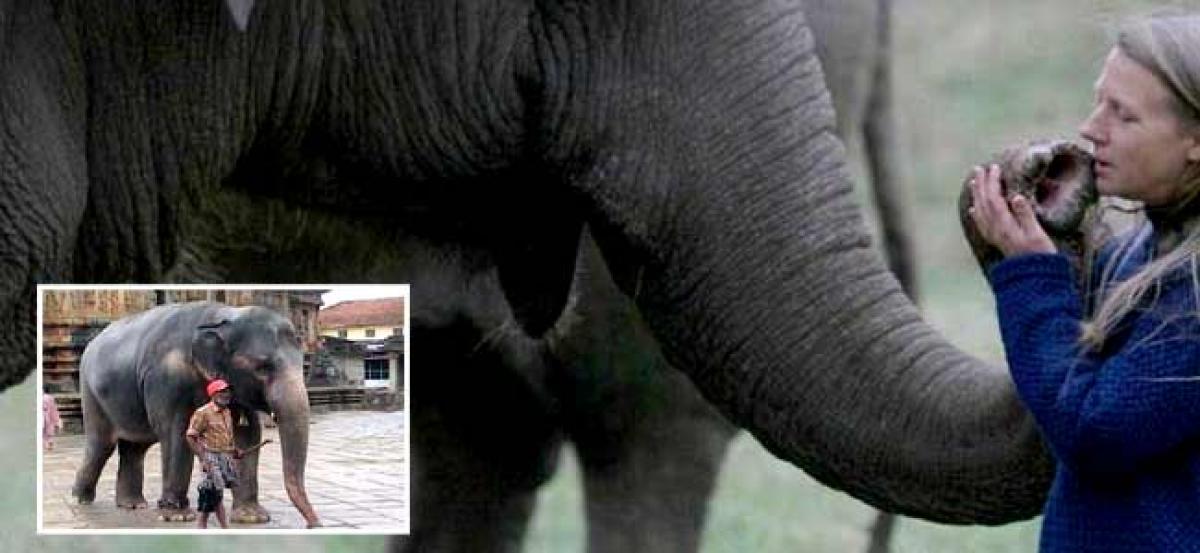Karnataka elephants brought to Lucknow zoo, learn Hindi commands

The Kannadaknowing elephants brought to Dudhwa national park in May from the tiger reserves in Karnataka have achieved a major feat They have learnt Hindi too
LUCKNOW: The Kannada-knowing elephants brought to Dudhwa national park in May from the tiger reserves in Karnataka have achieved a major feat. They have learnt Hindi too.
The 11 pachyderms had a idle life in Karnataka; they ate and wandered and were only occasionally put to work by the forest staff, but in Dudhwa they have defined daily chores with patrolling being their prime job at present.
These elephants had to take part in a crash course for Hindi so that they understand instructions to do their job with perfection. The younger ones, four-year-old Punga, three years and eight month old Parvati and two and a half year old Kaveri are proved to be good learners and picked up Hindi commands faster than their seniors.
“We started using Hindi words along with Kannada and then gradually stopped using commands in Kannada. At the most, the elephants took a week to learn some commands,” said Irshaad, one of the mahouts in Dudhwa who were sent to tiger reserves in Karnataka to observe these elephants and get friendly with them.
“When an elephant is told to turn around, the command in Kannada is ‘sarad’ but in Hindi it is ‘chaeghum’. To tell the elephant to move back we say ‘hat peechhe’ while in Kannada it is similar-sounding dhak peechhe,” he said.
Some commands are exactly similar like ‘tire’ which means lie down.
As of now, almost all elephants have got accustomed to getting a ‘khatola’ (small cot) tied on their backs on which the staff and tourists can sit. “The ‘khatola’ was not used in Karnataka but they have got used to it here,” said Irshaad.
The elephants are living in Bhira depot of the reserve within a fenced area which has a proper drainage and a restroom for staff.
The elephants brought to Dudhwa on May 5 will complete their training by September 5 after which the forest department will decide keeping them in different parks and wildlife sanctuaries.




















